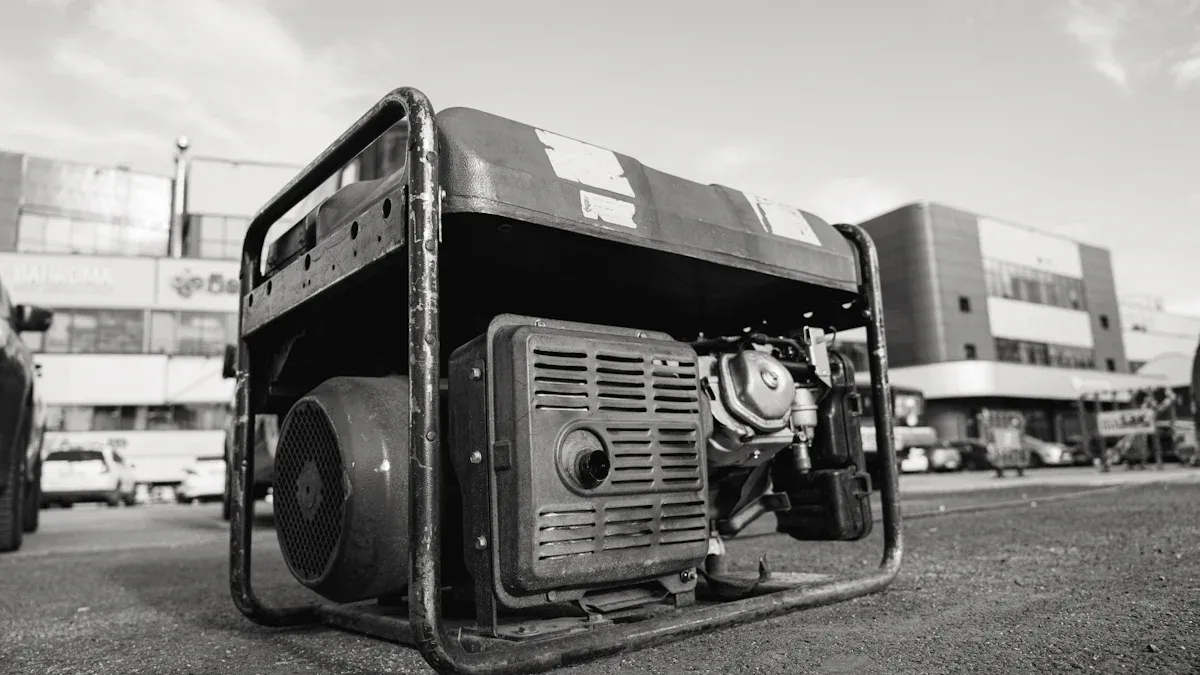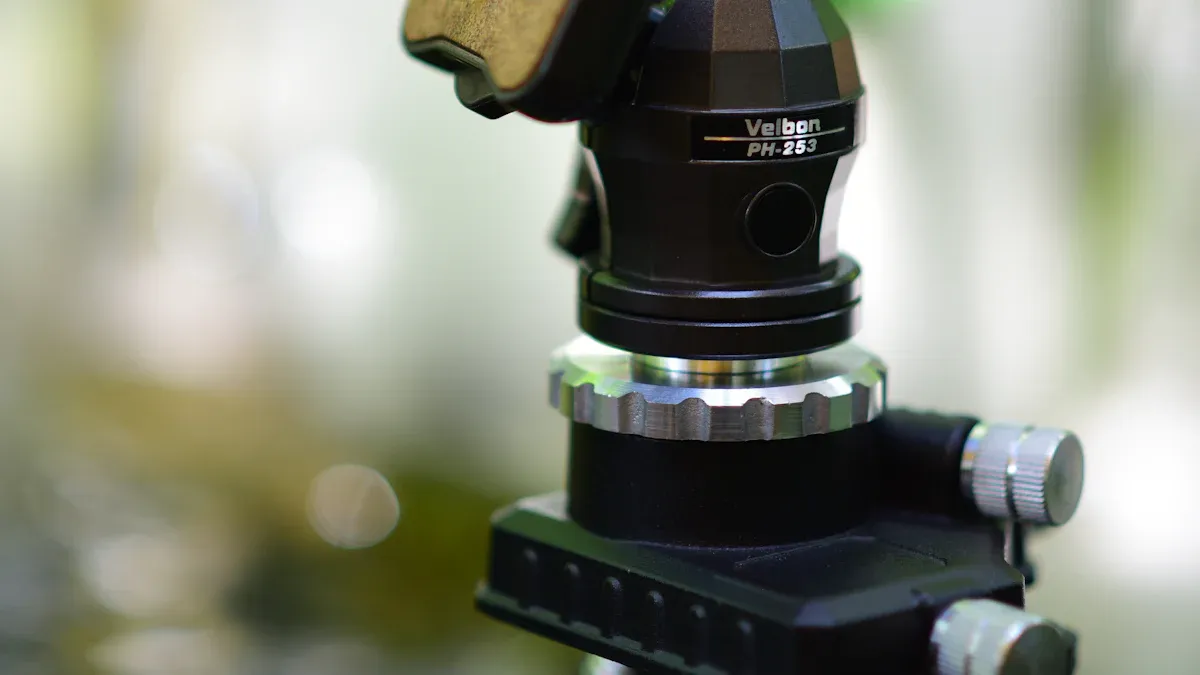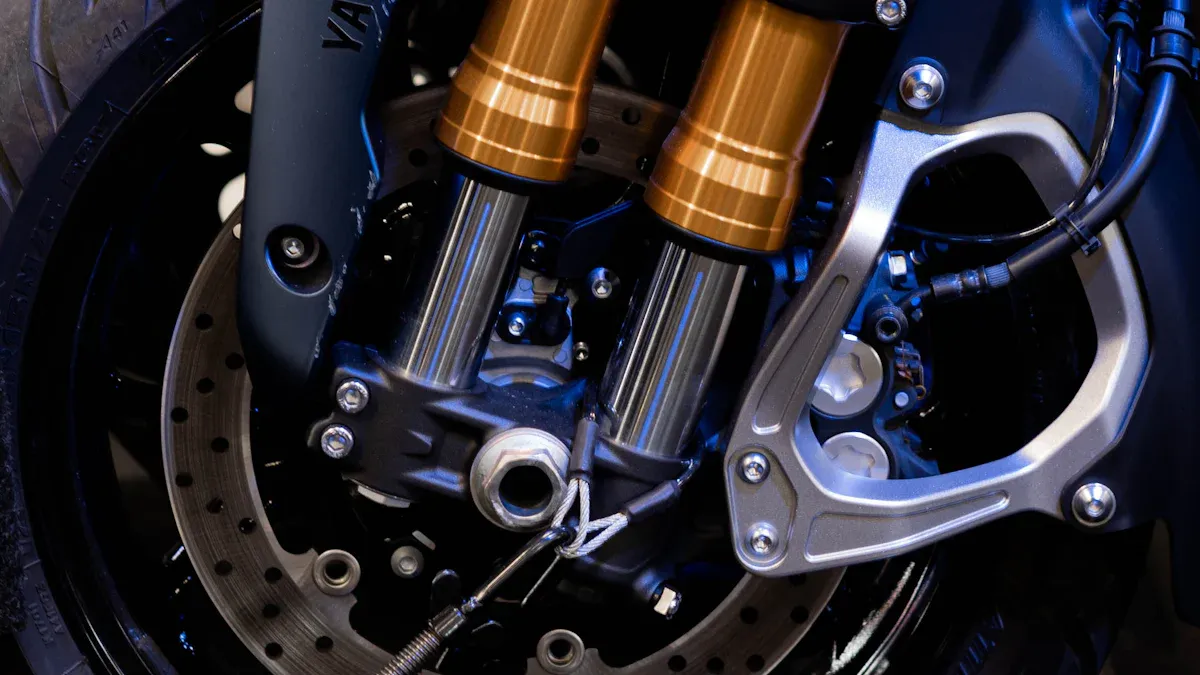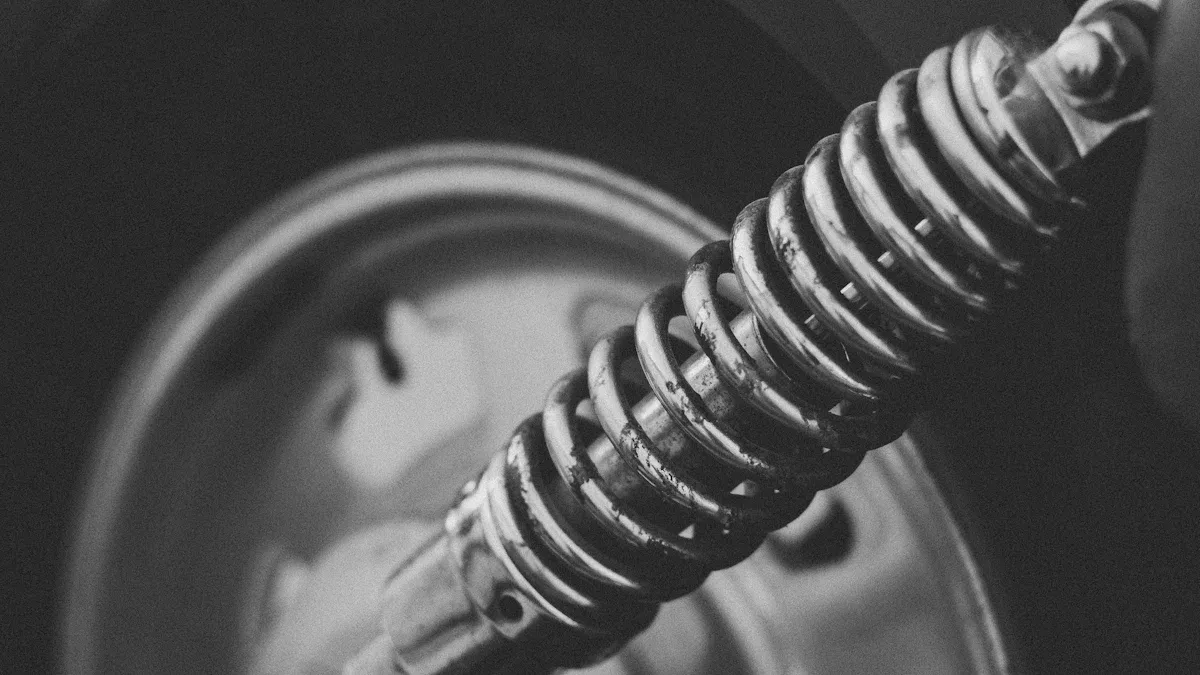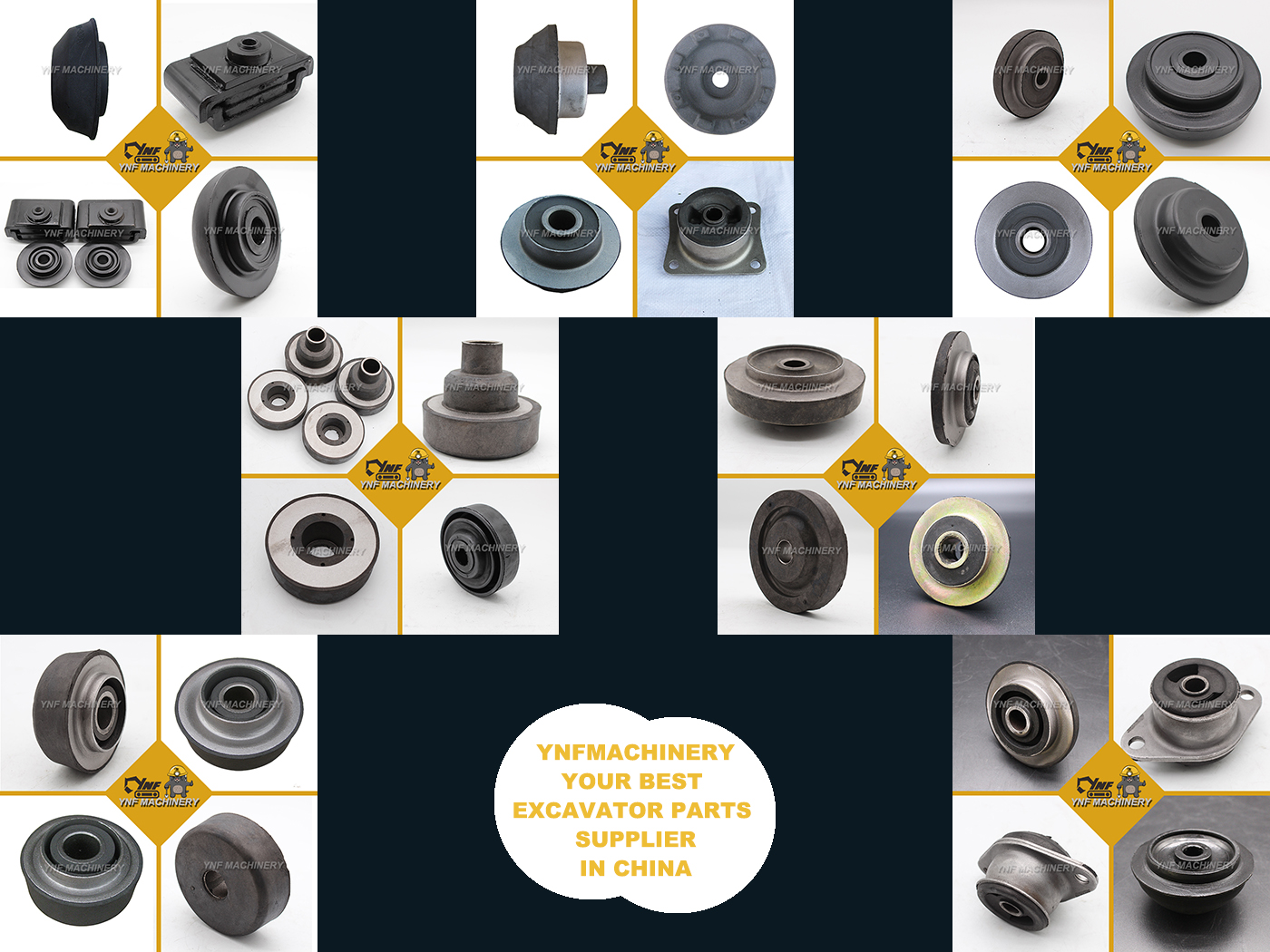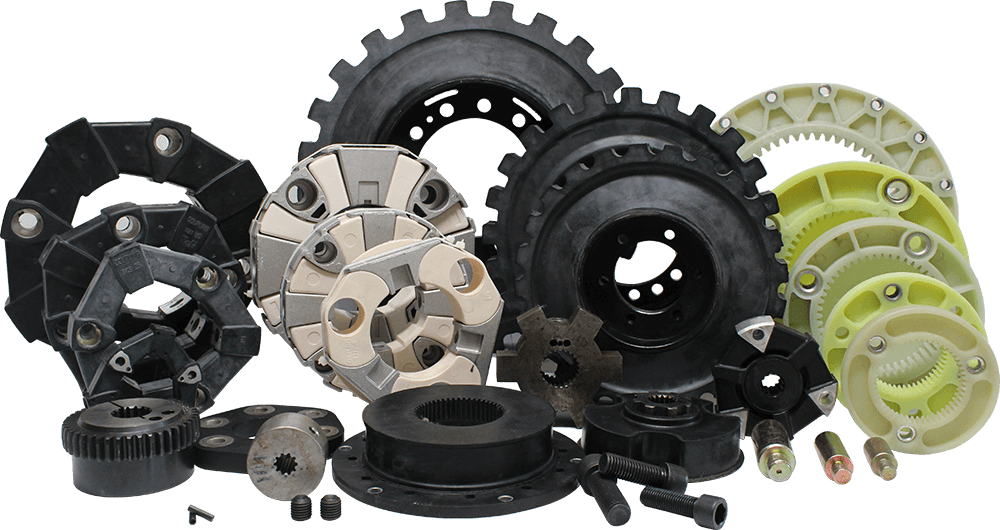Comprehensive Guide to Rubber Mounts: Enhancing Stability and Performance
Introduction
Rubber mounts play a crucial role in maximizing stability and performance across a wide range of applications, including automotive vehicles, HVAC systems, industrial machinery, and electronic appliances. Selecting and utilizing the right rubber mounts can significantly enhance the functionality, efficiency, and longevity of equipment.
This guide explores:
✔ Types and properties of rubber mounts
✔ Key benefits of rubber mounts in various industries
✔ Application-specific considerations for selecting the right rubber mounts
✔ Proper installation and maintenance for maximum effectiveness
By the end of this guide, you will gain a comprehensive understanding of how rubber mounts contribute to vibration isolation, noise reduction, and improved operational stability across different sectors.
Why Stability and Performance Matter?
Achieving seamless operations, enhanced safety, and improved efficiency in industrial applications depends largely on stability and vibration control. Rubber mounts help mitigate the effects of vibrations, shocks, and excessive movement, ensuring:
✅ Extended equipment lifespan
✅ Minimized structural stress
✅ Reduced noise levels
✅ Optimized performance of machinery
If you’re a machinery operator, automotive engineer, HVAC technician, or simply interested in mechanical systems, this guide will equip you with valuable insights into the importance of rubber mounts in various industries.
Understanding Rubber Mounts
Rubber mounts are engineered components designed to absorb shocks and vibrations, providing stability and isolation in machinery and equipment. Their effectiveness depends on specific design elements, material composition, and load-bearing properties.
Definition and Composition
A rubber mount consists of:
- Rubber elements (typically made from synthetic elastomers) that absorb vibrations and shocks
- Supporting components such as metal plates, studs, and mounting hardware for secure installation
This combination ensures optimal vibration isolation while maintaining durability and structural integrity.
Types of Rubber Mounts
Different types of rubber mounts are available, each designed for specific applications and load conditions.
1. Compression Mounts
🔹 Designed to support heavy loads and absorb vertical vibrations
🔹 Made from cylindrical rubber elements encased in metal plates
🔹 Ideal for applications where load-bearing capacity is crucial
2. Shear Mounts
🔹 Effective in isolating horizontal vibrations and shocks
🔹 Feature a rubber element sandwiched between metal plates
🔹 Absorbs force exerted in multiple directions
3. Stud Mounts (Sandwich Mounts)
🔹 Provide stability and vibration isolation in both vertical and horizontal directions
🔹 Consist of a central metal stud enclosed by rubber elements
🔹 Designed for secure attachment and easy installation
Key Properties of Rubber Mounts
The performance of rubber mounts depends on several critical properties:
1. Damping Characteristics
✔ Ability to absorb and disperse vibrations
✔ Reduces energy transmission to surrounding equipment
2. Resilience
✔ Ensures elasticity and shape recovery after deformation
✔ Maintains long-term vibration isolation effectiveness
3. Load Capacity
✔ Engineered to withstand specific weight loads
✔ Prevents premature failure due to excessive force
4. Vibration Isolation
✔ Prevents vibration propagation to other components
✔ Improves machine stability and operational performance
Selecting the Right Rubber Mounts
Choosing the correct rubber mount for your application requires careful consideration of several key factors:
🔹 Environmental Conditions – Exposure to chemicals, temperature variations, UV radiation, or moisture affects longevity.
🔹 Load Requirements – Assess both static and dynamic loads to ensure adequate load-bearing capacity.
🔹 Application-Specific Needs – Consider factors like space constraints, mounting options, and alignment requirements.
🔹 Vibration and Shock Levels – Choose mounts with suitable damping properties based on expected vibration frequencies and shock levels.
By evaluating these factors, you can select the most effective rubber mounts for enhancing stability, performance, and safety in your machinery.
Benefits of Rubber Mounts
Rubber mounts provide numerous advantages across various industries:
✅ 1. Vibration Reduction
✔ Absorbs and disperses machine-generated vibrations
✔ Prevents damage to surrounding equipment
✅ 2. Machinery Stability
✔ Prevents excessive movement of equipment
✔ Ensures proper alignment and functionality
✅ 3. Noise Reduction
✔ Isolates vibrations to reduce noise transmission
✔ Creates a quieter work environment
✅ 4. Extended Equipment Lifespan
✔ Minimizes wear and tear on critical components
✔ Reduces maintenance costs and downtime
✅ 5. Structural Protection
✔ Absorbs shocks to prevent damage to sensitive parts
✔ Enhances the durability of industrial systems
✅ 6. Improved Operator Comfort
✔ Reduces fatigue caused by vibrations
✔ Enhances safety in operator-heavy environments
Applications of Rubber Mounts
Rubber mounts are used in a wide range of industries to improve stability and performance:
1. Automotive Industry
🚗 Engine Mounts – Isolate engine vibrations to enhance comfort
🚗 Suspension Systems – Absorb road shocks for a smoother ride
2. Industrial Machinery
🏗 Heavy Equipment Mounts – Used in compressors, pumps, and generators
🏗 Generator and Compressor Isolation – Prevents vibration transmission
3. HVAC Systems
❄ Air Handling Units – Reduces vibrations from fans and motors
❄ Chillers and Condensing Units – Enhances system efficiency
4. Electronics & Appliances
🔊 Audio Equipment – Improves sound quality by minimizing vibrations
🌀 Washing Machines – Reduces excessive movement and noise
Installation and Maintenance Best Practices
To maximize the effectiveness of rubber mounts, proper installation and maintenance are essential:
🔧 Installation Tips:
✔ Ensure correct alignment before securing mounts
✔ Follow OEM torque specifications to prevent over-tightening
✔ Use compatible mounting hardware for secure attachment
🔧 Maintenance Guidelines:
✔ Regularly inspect for wear or cracks
✔ Clean rubber surfaces to remove dirt and contaminants
✔ Lubricate mounting hardware to prevent corrosion
Following these best practices ensures optimal performance, extended lifespan, and reliability of rubber mounts in your applications.
Conclusion
Rubber mounts are essential components that play a vital role in enhancing stability, vibration isolation, and performance across multiple industries.
✔ Absorb shocks and vibrations to protect machinery and structures
✔ Reduce noise and enhance comfort for operators and users
✔ Extend equipment lifespan by preventing premature wear
✔ Improve efficiency in automotive, industrial, HVAC, and electronic applications
By understanding the different types, properties, and selection factors of rubber mounts, you can make informed decisions to ensure optimal performance in your machinery.
Get High-Quality Rubber Mounts at YNF Rubber!
At YNF Rubber, we specialize in premium rubber mounts, couplings, and anti-vibration components for various industrial applications.
📩 Email: sales@ynfrubber.com
🌎 Website: www.ynfrubber.com
Get in touch with us for customized rubber solutions to meet your needs! 🚀


